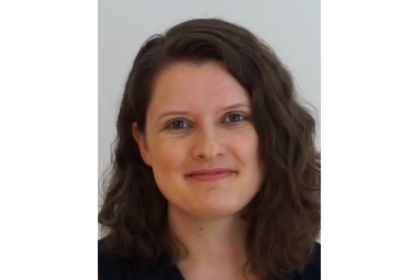
Marie-Therese Schultes, PhD
Postdoctoral researcher at the Institute for Implementation Science in Health Care, University of Zurich, Switzerland
Chair of the German Speaking Implementation Association
Twitter: @MT_Schultes
E-Mail: [email protected]
When I introduce myself as an implementation researcher in a German speaking context, I frequently find myself looking into puzzled faces of people who don’t have any idea what I am talking about. In discussions with my colleagues from Switzerland, Austria, and Germany, it becomes apparent that many of them share this impression. Although researchers in various fields might have similar experiences, we find that most people, whether they work in academia or not, have never heard of the term “Implementation Science” or its German counterparts Implementierungsforschung, Implementationsforschung or Implementierungswissenschaft. Corresponding to that, academic positions, funding for implementation research as well as training in the field are still hard to find around here. However, some recent positive developments show that implementation science is an emerging discipline, even in German speaking countries.

Implementation science in German language
Due to its interdisciplinary roots, there is no standardized terminology in implementation science, which gets more confusing when we try to translate central terms into other languages than English. However, speaking our collaborators’ language is always key to successful implementation projects, and even more so when we are using frameworks that have been developed in a different language area. The same applies to teaching in implementation science, especially in courses of continuing education, since these are often attended by professionals who have worked in practice settings for many years without any exposure to scientific literature in English language.
Accordingly, we need resources in German language that we can recommend to our collaborators and trainees. Here, translations of implementation science concepts to German language, such as Proctor’s implementation outcomes by Gutt et al. (2018) as well as the translated CFIR framework and ERIC recommendations by Regauer et al. (2021) can be enormously helpful. Similarly, for implementation research with German speaking participants, we need high quality outcome measures in German language. A systematic review by Kien et al. (2018) showed that these are rare, especially for public health interventions. However, help is underway with more and more measures being translated and validated for German speaking respondents (e.g., Kien et al., 2021).
German speaking implementation scientists
In recent years, more and more German speaking researchers have joined in the international implementation science discourse. At the same time, there has been a growing need for more local networking. Since context is an important variable in implementation science, sharing project experiences with colleagues from a similar geographic region can be highly beneficial. As a result, opportunities for local networking are well received among German speaking implementation researchers.
In March 2021, over 50 implementation researchers and practitioners from Germany, Austria and Switzerland got together for a virtual, interactive 2-day workshop of the University of Vienna’s “Promote ImpSci” project. In addition to small group discussions about special interest topics, the participants talked about challenges and resources for conducting implementation science and formulated an agenda for promoting the field in German speaking countries. Participants agreed on the need for creating more resources in German language and for increasing the visibility of implementation science in academia and the public discourse. Also, the participants wished for more similar events that allowed room for both structured discussions and informal exchange.

For everyone who wants to stay in touch, the German Speaking Implementation Association provides a platform on LinkedIn and an e-mail listserv. Soon to come are also a website with resources in German language and further virtual events. Moreover, in Switzerland, the IMPACT initiative (https://impact-dph.unibas.ch/) organizes a hybrid conference in February 2022 under the motto «Moving towards Impact – Implementation Science in Switzerland».
For the next generation of implementation scientists, there is a slowly but constantly growing number of training opportunities in German language. These range from classes and modules in undergraduate programs (e.g., in the MSc psychology at the University of Vienna, the MSc nursing science at the University of Basel, or in the MSc health economics and health care management at the Bergische Universität Wuppertal) to masterclasses (e.g., at the Institute for Implementation Science in Health Care, University of Zurich) and whole curricula that are dedicated to implementation science (the MSc program in Health Services Research and Implementation Science at the University of Heidelberg).
Unfortunately, the enthusiasm of highly engaged researchers and educators frequently meets structural barriers, especially when it comes to financing implementation research projects. Since there are hardly any designated funding streams or considerations of implementation science in curricula of higher education programs, we often have to get creative when we try to get our implementation research funded or dedicate our teaching to this topic. Accordingly, we need advocacy for implementation science in German speaking academia, funding agencies and beyond where we build knowledge and understanding of why implementation is (and should be) a science. So, in the future, we hopefully won’t look at puzzled faces anymore when we introduce ourselves as implementation researchers.
How can we do better in German speaking countries?
Building implementation science infrastructure is a complex endeavor that needs both patience and perseverance. If we want to improve the implementation science infrastructure in German speaking countries, we need to join forces in …
… translating central concepts and implementation outcome measures to German
… seizing opportunities to discuss our research endeavors with colleagues from our local (academic) community
… frequently talking about implementation science to make it visible in both the academic and public discourse
… convincing funding agencies of the importance of implementation science.
In addition, we need to keep communicating among European implementation networks to learn from those that are further along this path and to exchange ideas and experiences in the process of establishing implementation science in our countries. Here, the European Implementation Collaborative enables communication through various (virtual) channels and events.
Let’s make use of these opportunities for exchange and continue the conversation!
Join the German Speaking Implementation Association on LinkedIn: https://www.linkedin.com/groups/12042484
or via e-mail to: [email protected]
Become a member of the European Implementation Collaborative:


